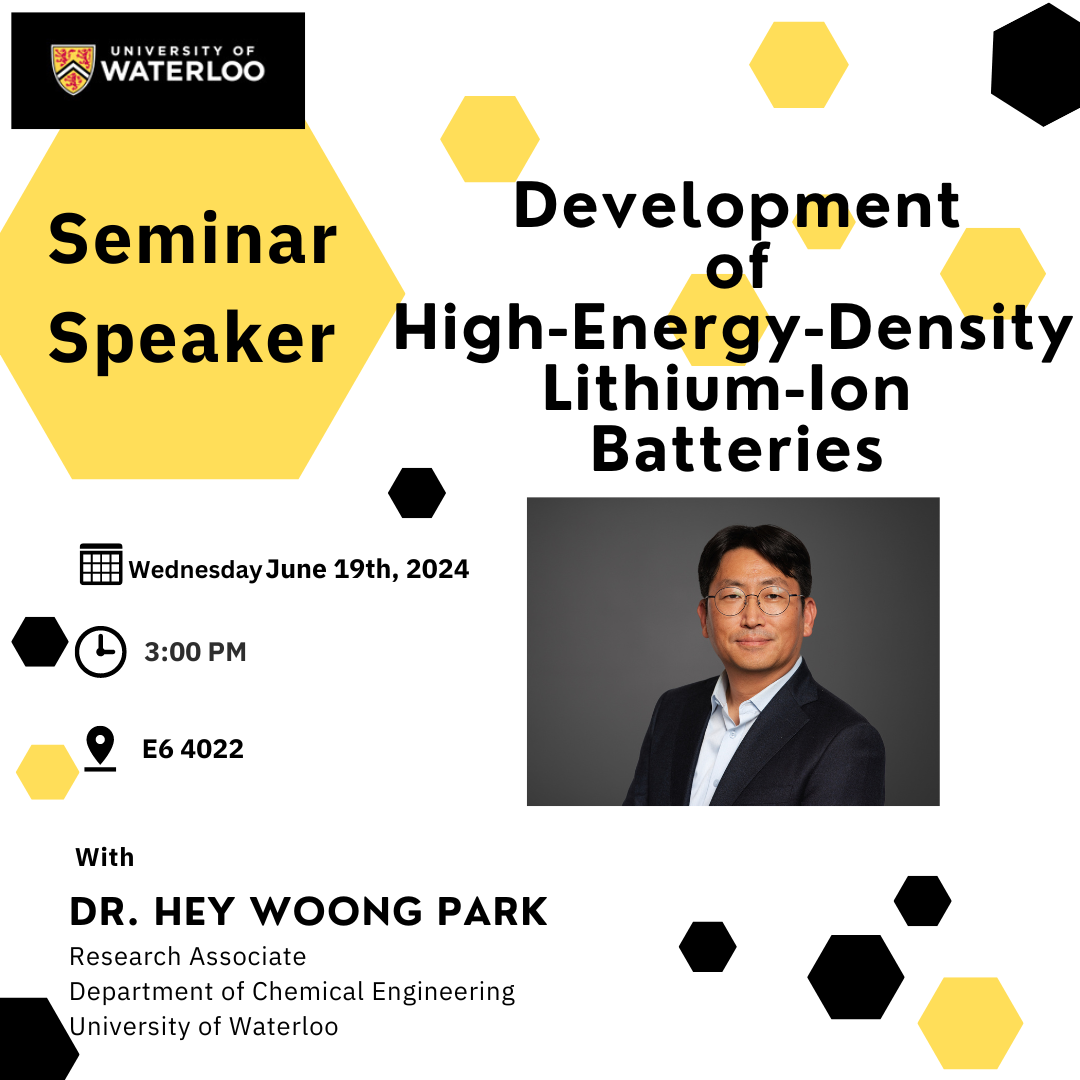
The Chemical Engineering Department is hosting a special graduate lecture on Development of High-Energy-Density Lithium-Ion Batteries.
Abstract:
The increased weight of electric vehicle batteries presents significant challenges, such as road damage, accelerated tire wear, and reduced driving range. Addressing these issues is crucial for the advancement and adoption of electric vehicles. This seminar will explore key challenges in enhancing the energy density of lithium (Li)-ion battery technology, with a focus on commercially feasible material and structural designs to improve energy density, safety, and battery longevity.
Firstly, Silicon (Si) as an anode material will be introduced. Si is the most promising anode material due to its high gravimetric energy density. Although Si was introduced as an anode material some time ago, its use in batteries is limited due to the intrinsic drawback of its enormous volumetric change during charge and discharge cycles. However, Si remains one of the key materials for improving the energy density of Li-ion batteries. Potential solutions based on practical research will be discussed. Secondly, the unique concept of the hybrid Li metal battery will be presented. This concept involves utilizing lithium metal, which is deposited on existing anode materials while the battery is charging. This approach reduces the amount of anode material required in the battery and allows for the use of conventional anode materials, thereby increasing energy density and reducing costs. Lastly, solid-state electrolytes for next-generation batteries will be discussed. Solid electrolytes have recently become the most attractive research topic in the battery field due to their potential to create safe and energy-dense batteries. Practical and applicable research for battery applications will be covered, including the proposal of a hybrid all-solid-state battery.
In conclusion, the strategies discussed in this seminar could pave the way for next-generation, high-energy-density, durable, and commercially viable lithium-ion batteries, driving significant advancements in electric vehicle technology and beyond.